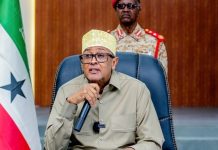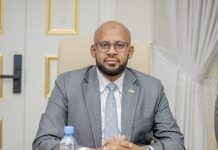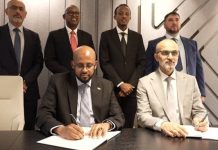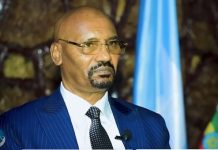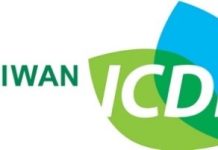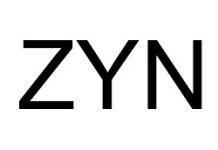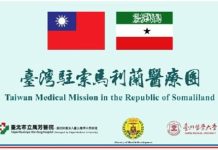Background:
Plan International is an independent development and humanitarian organization that advances children’s rights and equality for girls. We believe in the power and potential of every child. But this is often suppressed by poverty, violence, exclusion and discrimination. And its girls who are most affected. Working together with children, young people, our supporters and partners, we strive for a just world, tackling the root causes of the challenges facing girls and all vulnerable children. We support children’s rights from birth until they reach adulthood. And we enable children to prepare for – and respond to – crises and adversity. We drive changes in practice and policy at local, national and global levels using our reach, experience and knowledge. We have been building powerful partnerships for children for over 80 years, and are now active in more than 77 countries.
Plan International has opened an office in Somalia/Somaliland and has started programmes that focuses on child protection, education and youth economic empowerment programming, working with/through partners in both humanitarian and development settings and providing technical support to INGOs, Somaliland NGOs and the Government of Somaliland in Plan’s areas of expertise.
Project Description
The project was jointly implemented by Plan International in Somaliland, working in partnership with Network Against FGM/C in Somaliland (NAFIS), capitalizing on each of the partners respective strengths.
The Child Protection (CP) component focused on building understanding of the protection risks that children face, especially girls, awareness raising and technically and financially supported CP laws and policies in Somaliland. Plan International built the capacity of CP different actors including CSOs, community structures on understanding the child protection systems, case management and referral pathways and closely worked with CP actors, including the government line ministries, to coordinate project activities and ensure alignment with overall CP and SRHR priorities in Somaliland.
The FGM/C work was led by NAFIS, which has established itself as a leading organization in Somaliland working on FGM/C. Targeting legislators, Government officials and other influential leaders in Somaliland society. NAFIS and Plan Somaliland developed advocacy and influencing messages and materials that documented the overall harm that FGM does to women and girls, regardless of the type. Similarly, to the child capacity building component led by Plan International
Overall Impact of Project: Strengthened Child Protection System and protective environment in Somaliland for children, especially girls.
Overall Indicators:
- Existence of gender-sensitive national, multisectoral plans or strategies for coordinated action to prevent and respond to violence against children
- CP and FGM survivors’ referral systems strengthened and increasingly in use by duty bearers in 2 regions of Somaliland)
- Legislation enacted that prohibits FGM in Somaliland
Geographical Scope: The project was implemented in two regions in Somaliland of Hargeisa and Burao during 2.5 years.
Purpose of Evaluation
The overall purpose of the Evaluation is to assess the processes and achievements made to draw lessons that will inform future programming. The evaluation is intended to provide data on the performance, impact and sustainability of project interventions. The evaluation will assess the extent to which the outcomes of the project have been achieved, determine relevance, efficiency, effectiveness and sustainability of the interventions/project and document lessons learnt
Scope and Focus of Evaluation
The final evaluation will look at the following areas: Project management; project activities; engagement of government institutions and other relevant stakeholders. It will address the results achieved, the engagements made and capacities strengthened
| Objective | Key Questions |
| Relevance/Appropriateness
To assess the relevance of the project activities to the local context and to the needs of the target communities |
· Assess design and focus of the project – To what extent did the project achieve its overall objectives?
· What and how much progress has been made towards achieving the overall outputs and outcomes of the project · To what extent were the results (impacts, outcomes and outputs) achieved? · Were the inputs and strategies identified, and were they realistic, appropriate and adequate to achieve the results? · Was the project relevant to the identified needs? · Project adoptions to learn from the COVID-19 pandemic (incl, lowdown’s, school closures) |
| Effectiveness
To assess the progress made towards achieving the project’s objectives, outcomes and goal |
· To what extent did the programme achieve its outputs, outcomes and goals?
· What were the major factors influencing the achievement or non-achievement of the objectives? · Was the project effective in delivering desired/planned results and non-planned results ? · How effective were the strategies and tools used in the implementation of the project? · How effective has the project been in responding to the needs of the beneficiaries, and what results were achieved? |
| Impact
To assess the potential impact of the project on the targeted communities |
· What the positive and negative, intended and unintended, changes produced by the project?
· Analyze the contribution of the project to any observed impact (intended, unintended, positive, negative) and analyze what other actors and factors contributed to the impact. · What real difference has the intervention made to the beneficiaries? |
| Sustainability | · To what extent are the benefits of the projects likely to be sustained after the completion of this project?
· What is the likelihood of continuation and sustainability of project outcomes and benefits after completion of the project? · How were capacities strengthened at the individual and organizational level including government institutions, staff and other community structures? · Describe the main lessons that have emerged? · What are the recommendations for similar support in future? · Challenges/barriers |
| The above questions serve as guidance and are not an exhaustive list. The consultant is expected to refine and explore further as deemed necessary. | |
Evaluation Methodology
The evaluation will use mixed method approach that draws on both existing and new quantitative and qualitative data to answer the evaluation questions. A detailed methodology including sampling and data collection methods should be included in the technical proposal.
The consultant will come up with detailed methodology in consideration of the information outlined in this ToR but proposed methods include but not limited to review of existing literature on the Child protection situation in Somaliland, project documents and other relevant literature, focus group discussions, key informant interviews, observations. The consultant will identify the sampling strategy which will be reviewed and approved by Plan International and NAFIS partner. The sampling process should be systematic, representative and take into consideration the different target beneficiaries and locations.
Participatory methods that maximize the meaningful participation of children and their caregivers will be important. The evaluators shall present an inception report detailing key survey questions; source of information/data; sampling procedures and the sample size, data collection method and tools, data analysis plan and a report structure. The inception report shall be refined in consultation with Plan international staff and approved before commencing data collection.
Plan International Responsibilities
- Review and Approve inception report
- Provide input into the tools developed, and evaluation design.
- Provide consultants with literature review materials/necessary documentations.
- Link consultants to relevant stakeholders
- Review analysis of the data collected prior to the documentation of the final report
- Review draft report
- Approve and sign off final report
Consultant Responsibilities:
The consultant will lead the process of:
- Study design, methodology, planning and quality control procedures;
- Recruiting and/or training enumerators in survey protocols, techniques and on the methods
- Reviewing existing literature to inform study designs, research questions, and development of sampling methodologies
- Finalizing work plan, questionnaire(s), KII & FGD guidelines
- The consultant will guide and provide required technical support to the field teams for carrying out interviews and gathering information from different stakeholders.
- The consultant will remain responsible for the entire study maintaining the highest-level standards and quality and for producing the final evaluation reports.
Deliverables:
The following outputs are expected from the consultant:
- Work plan and Inception Report (with key parameters and indicators to be considered for the evaluation including methodology, key survey questions; source of information/data; sampling procedures and the sample size, data collection methods and tools, data analysis plan, reporting and all the tools
- Both row and cleaned data sets
- A comprehensive and well-organized Final Report complete with standard reporting formats, not more than 40 pages excluding preliminary and annexes
- A set of actionable and evidence-based recommendations
- Recommendations should consider the needs of specific stakeholder groups, and be relevant to the effective impact measurement of programme objectives and outcomes.
- The consultant will present findings/recommendations in a debriefing meeting organized for Plan international staff, partner, SNO and other key stakeholders
Ethics and Child Protection
Plan International is committed to ensuring that the rights of those participating in data collection or analysis are respected and protected, in accordance with Ethical MERL Framework and our Child and Youth Safeguarding Policy. All applicants should include details in their proposal on how they will ensure ethics and child protection in the data collection process. Specifically, the consultant(s) shall explain how appropriate, safe, non-discriminatory participation of all stakeholders will be ensured and how special attention will be paid to the needs of children and other vulnerable groups. The consultant(s) shall also explain how confidentiality and anonymity of participants will be guaranteed.
Timeline and Budget
The assignment will be 25 days inclusive travel. the anticipated date of the end line evaluation is December, 2021. Plan International places a premium on cost effectiveness with an indicative budget of $17,000 for this work.
Skills and qualifications of consultants
The successful evaluation firm will have a solid track record on the criteria below, with examples of evidence for each.
General criteria
- Post graduate qualifications (MA level) in social science, particularly international Law, sociology, human rights, Development studies, or related fields
- Minimum of 10 years of demonstrated professional experience delivering Monitoring and Evaluations services
- Proven experience in conducting evaluations for both humanitarian and development projects
- Experience in applying participatory tools especially when interviewing/collecting information from children
- Demonstrable expertise on child rights, child protection and gender equality
- Thematic expertise on violence against children with particular reference on girls such as harmful traditional practices, or FGM/C
- Experience working with research directly with children and youth, and showing high ethical standards in ensuring that children and youth are not harmed in the research process
- Geographic expertise in East/Horn of Africa, preferably Somaliland
- A financial proposal that offers good value for money and that maximises potential efficiencies to deliver the outputs within budget.
Technical criteria
- Experience in quantitative and qualitative methods and analysis, participatory research, action research
- Experience in project monitoring and evaluation systems, including those using participatory approaches and ‘hard to measure’ indicators (i.e. empowerment, governance, well-being, etc.)
- Experience in designing and conducting rigorous research (including using experimental/quasi-experimental and/or theory-based evaluation methodologies)
- Evidence of strong downward accountability mechanisms used with project stakeholders/research participants to actively share results and learning
- Evidence of use of ethical considerations and methodological measures for conducting research with girls, women, boys, men on sensitive topics
- Evidence of successfully designing and managing large-scale, rigorous and robust research processes and evaluations.
Code of Conduct
The consultant (s) and evaluation processes must comply to Plan International Research ethics. HR Code of Conduct and Plan’s Child Protection/Safeguarding Policies.
Intellectual Property Rights:
All documentation related to the assignment shall remain the sole and exclusive property of Plan International.
Application Process
Interested and qualified consultants are expected to submit the following documents which will form part of the pre-selection recruitment process:
- Company Profile
- CVs of the consultant with at least three credible referees.
- Technical proposal, outlining an understanding and interpretation of the TOR and methodologies including sampling procedure, data collection, data analysis plan, quality assurance, management and tools to be used
- Detailed Work Plan
- Financial Proposal outlining consultant’s daily rates and break down of all other costs associated with the assignment.
Proven samples of the previous similar work with INGOs and/or UN agencies preferably
Selected consultant(s) will be expected to sign and abide by Plan’s Code of Conduct and Child Protection/Safeguarding Policies.
Please send your applications to som.procurement@plan-international.org
Please be informed that we will be reviewing on rolling basis, hence, sooner you submit your proposal is better. The deadline is 28th Dec, 2021


